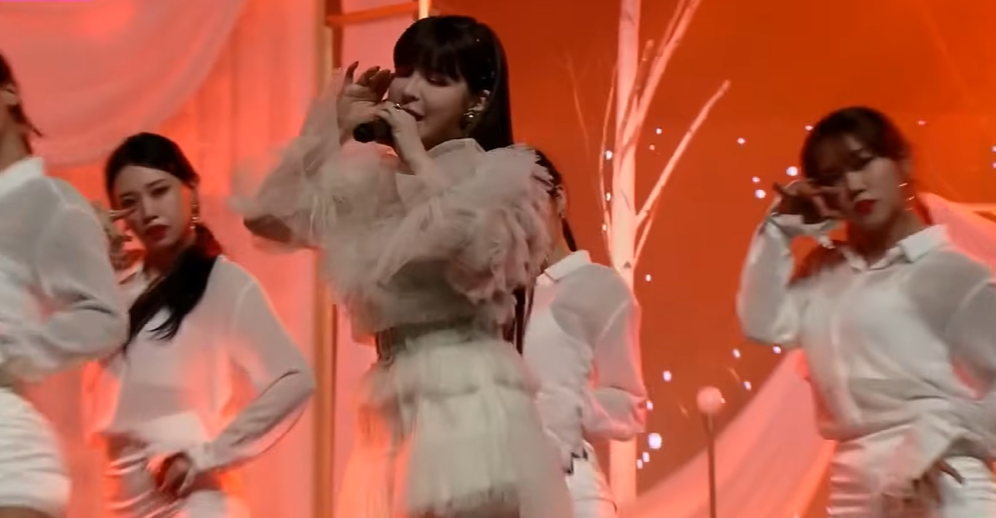Park Bom’s name has come up again in K-Pop discussions with a story that is both incredibly human and astounding. Questions concerning creative ownership, emotional health, and the thin line separating personal freedom from celebrity were rekindled by a single social media post that alluded to a lawsuit worth an astounding $4.5 quadrillion.
She claimed that YG Entertainment and its founder, Yang Hyun-suk, had withheld her earnings and made fun of her appearance in what appeared to be a handwritten legal complaint that she uploaded. The cited figure, which was so enormous that it overshadowed national budgets, transformed curiosity into incredulity. The story of an artist who once defined an era and is currently struggling to reclaim her narrative, however, is far more complicated than the memes and online chatter.
D-Nation Entertainment, her agency, quickly stepped in and clarified that no lawsuit of that kind had been brought. They appealed for sympathy and confirmed that all financial issues from her 2NE1 tenure had been resolved in an official note, describing her as “emotionally unstable” and in urgent need of rest. The tone of their message, which aimed to strike a balance between empathy and truth, was notably gentle.
Park Bom — Profile and Background
| Field | Information |
|---|---|
| Full Name | Park Bom (박봄) |
| Date of Birth | March 24, 1984 |
| Birthplace | Seoul, South Korea |
| Nationality | South Korean |
| Occupation | Singer, songwriter |
| Known For | Former member of 2NE1 |
| Current Agency | D-Nation Entertainment |
| Former Agency | YG Entertainment |
| Years Active | 2006 – present |
| Reference | Wikipedia – Park Bom |

The episode felt incredibly illuminating to anyone who is acquainted with the well-oiled machine of K-Pop. Park Bom’s admissions that she “wrote all of 2NE1’s songs” and that she paid for her own dermatology care highlight a persistent conflict: artists acting as creative catalysts but only getting a passing mention. Her description of it as a life “locked up and written over” is remarkably similar to that of other musicians in various international industries who have since fought their record labels for equitable recognition and compensation.
Even though her claims were overstated in terms of money, her sincerity struck a raw chord with her fans. She was recalled by many as the golden-voiced contralto whose performances once made 2NE1 almost legendary. It felt like years of heartache to watch her publicly beg for recognition. According to this interpretation, the purported $4.5 quadrillion amount reads more like a metaphor—a dramatic manifestation of accumulated pain and perceived betrayal—than as a delusion.
Park Bom brought attention to a topic that is still particularly delicate in the entertainment industry: body image as a weapon and an asset by pointing out how her image had been “mocked” and commercialized. Given how female idols are frequently examined with ruthless accuracy, the idea that a company might have used her surgeries for publicity hurts a great deal. Supporters recognized that her struggle was about dignity rather than a number.
Reporters in Korean media gave her story cautious respect. While fans on social media vacillated between defense and worry, outlets like Gulf News and The Korea Times detailed the agency’s efforts to stabilize her well-being. What surfaced was an open discussion about mental health, a subject that was previously dismissed but is now becoming more accepted by entertainers and their fans.
Park Bom’s public admission of vulnerability has surprisingly advanced this conversation. Despite being protective, her agency’s request for privacy was unable to stem the sympathy her posts generated. Perhaps for the first time, people saw the person behind the brand—a woman juggling expectations, anxiety, and a feeling of being misinterpreted. Even though it was unplanned, that visibility might be incredibly helpful in lessening the stigma associated with emotional instability in demanding professions.
Her experience also illustrates how personal distress is exacerbated by digital immediacy. Within minutes, a single post can spread around the world and spark stories that are impossible for publicists to keep up with. The internet’s constant amplification can be both empowering and devastating for artists who are already dealing with psychological stress. It can both validate legitimate complaints and completely misrepresent them.
Park Bom’s situation is consistent with larger reform movements in the creative industry from a structural standpoint. Fan communities are calling for more ethical management, contracts are being renegotiated, and mental health provisions are being reinforced. In this way, her voice, trembling but unwavering, adds to the chorus of artists taking back control of their narratives. Ironically, the next generation of idols may benefit most from the controversy as they absorb its lessons.

